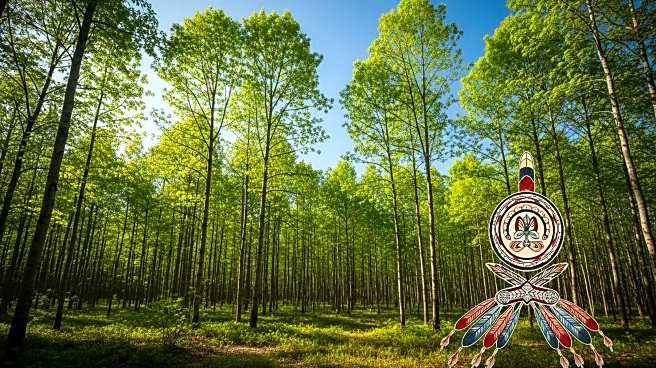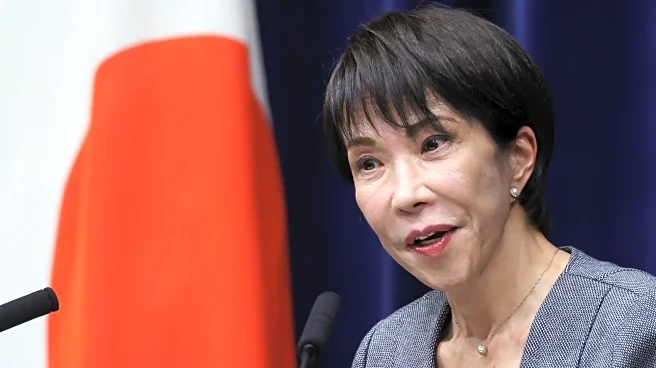What is the story about?
What's Happening?
Canada is experiencing one of its worst wildfire seasons on record, with Indigenous communities bearing the brunt of the impact. Indigenous people, who constitute 5% of Canada's population, have accounted for more than half of the wildfire evacuees this year. The fires have devastated large areas of boreal forest, threatening the land and wildlife that Indigenous communities rely on for sustenance and cultural practices. The response to the crisis has been criticized for being reactive rather than proactive, with Indigenous leaders calling for better integration of Indigenous knowledge in forest management and emergency response.
Why It's Important?
The disproportionate impact of wildfires on Indigenous communities in Canada underscores the vulnerabilities faced by these populations in the context of climate change. The situation highlights the need for improved emergency management and infrastructure support for Indigenous reserves. The reliance on traditional land stewardship practices, which have been largely ignored, points to a gap in current forest management strategies. This crisis may prompt policy changes aimed at incorporating Indigenous knowledge into environmental and emergency planning, potentially leading to more sustainable and culturally sensitive approaches.
What's Next?
In response to the wildfire crisis, there may be increased advocacy for policy reforms that prioritize Indigenous-led approaches to emergency management and forest stewardship. The Canadian government and provincial authorities could face pressure to establish comprehensive agreements that ensure equitable access to emergency services for Indigenous communities. Long-term strategies may be developed to address infrastructure deficiencies and enhance resilience against future climate-related disasters. Collaboration between Indigenous leaders and government agencies could be crucial in shaping effective responses and preventing similar situations in the future.
Beyond the Headlines
The impact of wildfires on Indigenous communities in Canada raises broader questions about environmental justice and the legacy of colonialism. The exclusion of Indigenous knowledge from decision-making processes reflects systemic issues that contribute to the marginalization of these communities. Addressing these challenges requires a commitment to recognizing and valuing Indigenous perspectives in environmental and policy discussions. The crisis also highlights the cultural significance of land and the need to protect it from the increasing threats posed by climate change.

















